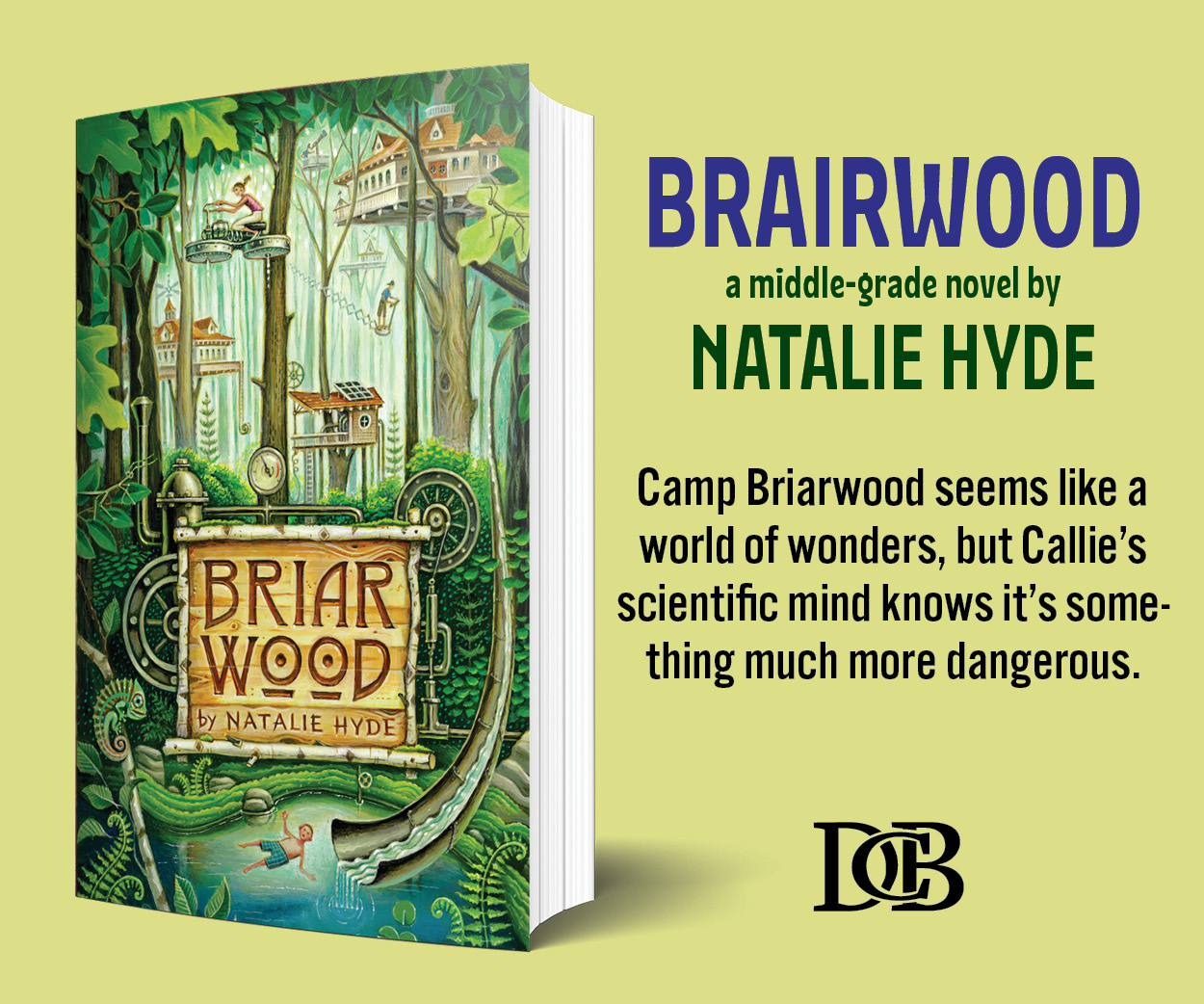Playwright Natasha Adiyana Morris on The Plays that Shaped Her & Why She Won't Remove Local Culture from Her Work
Playwright Natasha Adiyana Morris' The Negroes Are Congregating (forthcoming from Playwrights Canada Press later this month) became a sensation during its 2020 run at Theatre Passe Muraille. Morris, known for founding PIECE OF MINE Arts, an initiative that presents works in progress by Black play creators, was nominated for a Dora Mavor Moore Award for Outstanding New Play.
The play, now available in book form, is a tour de force of wit, brilliance, and daring genre-bending as Morris weaves in satire, spoken word, and more to create a rich exploration of the Black experience both in Canada and around the world.
Questioning internalized self-hatred, and how to break its intergenerational thread, examining life and identity under systemic racism, and working to uncover the very essence of Blackness itself, The Negroes Are Congregating is a triumph from a major talent. We're excited to speak with Natasha today about her writing process and the works that have influenced her.
She tells us about the plays that had such an affect on her that she went back to see them multiple times to soak up their lessons, the "two stark sides" present in Canada's playwriting community, and why her goal as a playwright is to "make contact with the audience’s psyche".
Open Book:
What is the first play you remember being affected by, and how did you happen to see or read it?
Natasha Adiyana Morris:
The first play that affected me, in its entirety, was blood.claat by d’bi.young anitafrika. This play debuted in 2006 at the biannual AfriCanadian Playwrights Festival, spearheaded by Djanet Sears. It also happened to be the last year the iconic festival was produced. I found a middle row seat in the Theatre Passe Muraille main space and immediately found myself transported to a tenement yard in Kingston, Jamaica.
The story of Mudgu SanKofa was completely captivating, taking me along a day-in-the-life of her 15-year old world—the good, the bad, and the ugly. As a second generation Jamaican, I also felt proud of the nation language, Patois, intentionally flavouring the narrative. blood.claat taught me how to create from self, nurturing the essence of memory combined with the power of myth. I found myself watching the show a second and third time during its run with the same awe as the first.
OB:
What has been your most unlikely source of inspiration?
NAM:
My most unlikely source of inspiration isn't so unlikely, but over the years has anchored my form of writing: music. I believe that music is thee universal art form. You can be touched by a song stretching over a lifetime—belting along, dancing along, crying along, in a way that exceeds the relationship to any other medium (in my opinion). And although I am not a musician or vocalist, I find lyrics and musicality taking more and more real estate in my stories. The dominance of music also forces me to confront the crosshairs between concert, play, and musical theatre. When I lean into the authentic voice of the characters, I am able to let go of genre/structure norms and trust the craft I’ve been gifted: drama.
OB:
What do you do with a play in progress or a scene that just isn’t working?
Your CanLit News
Subscribe to Open Book’s newsletter to get local book events, literary content, writing tips, and more in your inbox
NAM:
I work it to death. It’s an unpleasant process but when I know that there’s something there I have to approach it from different angles. What is the core is a question, what are the possible outcomes, and what is the best choice for the story. I don’t have too much trouble with deleting a scene that isn’t fitting but I do save a lot of my work to see if it’ll find its way back in or even be a missing component for another play.
OB:
What was the last play that you saw or read that really knocked your socks off?
NAM:
The last play I saw that shook me was The Brothers Size by Tarell Alvin McCraney. I had no expectation going into the 2019 Soulpepper production but was pleasantly caught off guard. I first loved how Tarell personified Yoruba Gods as character names/traits—it spoke volumes in contrast to the common Western standard of Greek God adaptations. I then adored how he broke the ‘rules,’ including stage directions in the text—something that worked so well to provide subtext. Finally, the script as a whole was phenomenal. The scene of Ogun, played by Daren Herbert, bursting out “you f’d up” in overflowing repetition gave me chills. I saw that production three times as well.
A close second would be Is God Is by Aleshea Harris. It’s a wild and absurd thriller that had all the qualities of a breakthrough play.
OB:
How would you describe the theatre and playwriting community in Canada? What strengths and weaknesses do you observe within the community?
NAM:
There are two stark sides to the playwriting community in Canada. On one hand you have incredible diversity as far as the content and style is concerned. I love that I can count on being surprised by a show—most productions feel unique to a honed aesthetic. On the other hand, plays are a huge labour of love, they often take an average of five years to develop to production quality and after a highly anticipated premiere... you likely may never see that play again. Crickets. I believe that is a disservice to our country’s talent and arts sector.
A touring play is a rare reality for most playwrights, from early career to seasoned. Had I not self-produced the majority of my work, it’s unlikely it would have seen the light of day. Speaking specifically to African-Canadian playwrights, I find that African-American work takes precedence over our homegrown stories. It is easy to recognize a play such as The Brothers Size is distinctly African-American, though it’s coined a ‘Black’ play for diversity's sake, which further mulls our experiences as a monolith culture and somewhat erases the unique/vast African-Canadian experience.
I have been encouraged to revise text that is considered too Torontoian to reach a broader audience but I stick to the local culture, including vernacular and landmarks, because it should be as particular as a story based in New York or London.
OB:
What is the worst thing about being a playwright, and what is the best?
NAM:
In short, the worst thing about being a playwright is criticism that has nothing to do with the play and all to do with a product, and the best part is advice focused on the writing. It’s in our nature to categorize and pigeonhole content we don’t quite understand... or even like for that matter. I don’t think bells and whistles make a play better, it just makes the ticket more expensive.
My objective when receiving feedback is to narrow in on how I can better make contact with the audience’s psyche. Can anything in the play meaningfully inform a future conversation or decision that would not have otherwise happened? As someone who watches quite a bit of theatre, this is an incredibly difficult task because you don’t want to tell people what to think and you don’t want to tell a story so dense or simple that the point becomes lost. As a playwright, I want you to see what is not said and come to your own conclusions. I mostly navigate that task by myself but sometimes I’m lucky enough to get helpful guidance along the way.
_________________________________
Natasha Adiyana Morris is a soft-spoken, dramatic storyteller. Born in Winnipeg and raised in Toronto’s West End—in the most encouraging and full’up Jamaican household—being (h)extra is in her blood. Recognized for founding PIECE OF MINE Arts, an initiative that presents works in progress by Black play creators, she owes a great deal to the esteemed tutelage of b current, anitafrika! dub theatre, Obsidian Theatre, and Volcano Theatre. Her debut production The Negroes Are Congregating (PIECE OF MINE Arts, Theatre Passe Muraille) was nominated for a Dora Mavor Moore Award for Outstanding New Play. She is honoured to be a Soulpepper Academy and York University (Sociology B.A.) alumni.






